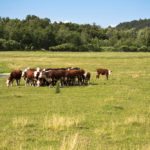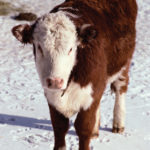
Tag Archives Manitoba Beef Producers

Manitoba putting points system out to pasture
Producers will have to bid for forage and grazing Crown lands as of next fall rather than the current points-based system

Bumper year for the beef industry, despite dry season
The beef industry is floating on high prices, high cattle volumes and cautious regulatory optimism going into 2018

Who’s the father?
Initial data out of the Western Beef Development Centre and University of Saskatchewan shows siring rates in a pasture might vary more than you’d think

Beef industry speaks to the sector’s future
Manitoba Beef Producers and Manitoba 4-H Council are making the rounds through the province with three youth-focused forums
Manitoba Beef Producers hosting checkoff town hall
The meeting will include representatives from several key industry groups

Marketed cattle jump cited as Manitoba Beef Producers ends strong on financial year
An increase in marketed cattle let the Manitoba Beef Producers buck an expected deficit 2017, according to the first financial statements

Import changes looming for veterinary drugs
Canadian producers have used the U.S. to access cheaper veterinary drugs, but the list of approved drugs is about to change Nov. 13

Manitoba Beef Producers sets eyes on 2021 TB-free goal
Manitoba Beef Producers hopes to get the province back on the USDA’s tuberculosis-free list, saying negative tests from wildlife proves its point

MBP seeks producer data on predation losses
Beef operators are urged to fill out a survey and help assess the extent of the problem
Manitoba Beef Producers awards 2017 bursaries
One of the goals of the annual awards is to encourage students to study agriculture-related fields or trades


